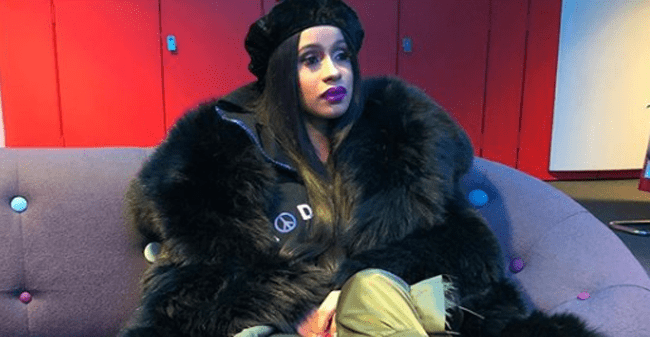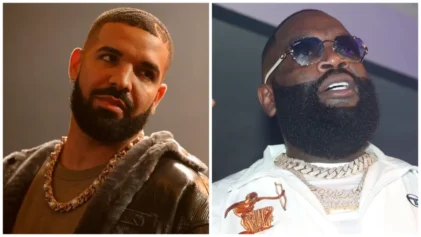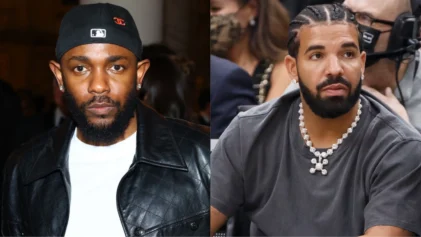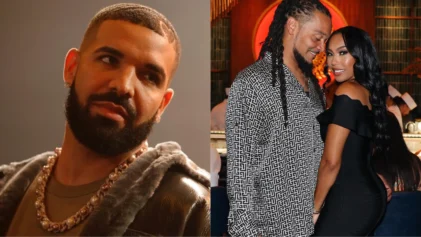
You’ve probably heard this question asked many times before when it comes to rap music: Does it matter these days if a rapper writes their own lyrics?
The question recently came up after Cardi B’s “Bodak Yellow” was nominated for the Best Rap Performance and Best Rap Song for the 2018 Grammy Awards. At first, many thought the New York rapper didn’t write the tune herself, because her real name Belcalis Almanzar wasn’t listed in the credits.
But according to a Grammy representative, Cardi is credited as a writer.
The debate on whether it’s important for rappers to write their own lyrics came to a head when Drake and Meek Mill had their famous dispute a couple of years ago.
“Stop comparing Drake to me too,” tweeted Meek after the two collaborated on the song “R.I.CO.” “He don’t write his own raps. That’s why he ain’t tweet my album, because we found out.”
Later on, after Meek’s accusation had many questioning Drake’s songwriting abilities, he spoke about ghostwriting in an interview with Fader. In short, the Canadian rapper said sometimes he works with others to spark a song concept that he can build on.
“I need, sometimes, individuals to spark an idea so that I can take off running,” Drake explained. “Music at times can be a collaborative process, you know? Who came up with this, who came up with that? For me, it’s like, I know what it takes me to execute every single thing that I’ve done up until this point. And I’m not ashamed.”
Even though Meek and Drake’s back and forth about ghostwriting had hip-hop’s attention, more times than not, it’s the women rappers who are accused of getting others to write for them.
Like Nicki Minaj, who was accused of getting -her boyfriend at the time- Safaree Samuels to write many of the lyrics on her “Pink Friday” album. In fact, Safaree was the one who started the rumor after he and Nicki split. At one point, he demanded money from Nicki for his ghostwriting.
Later, however, Safaree admitted that he didn’t write the Young Money rapper’s lyrics, and he also acknowledged that she’s extremely talented. “She is way more than capable of writing an album on her own without me,” he tweeted. “She’s not a dumb person.”
Related news: Grammy Awards
JAY-Z Leads Grammy Nominations With 8 As Rap, R&B Take Center Stage
Drake Did Not Submit Latest Album to the Grammys
Chance the Rapper Donating Grammy Award to Chicago Museum
Remy Ma was another rapper at the center of a ghostwriting controversy when Nicki said that her husband Papoose penned her rhymes. “The Pinkprint” creator made the accusation in her Remy diss song “No Frauds,” after The Bronx rapper dropped her scathing battle cut “shETHER.”
“You know what’s so crazy? Remy asked. “N—– say Pap is writing for me. First of all, my husband is dumb nice … N—– ain’t never want to give him his props. Now, when n—– get shethered, now all of a sudden he’s writing my rhymes? Who the f— was writing my rhymes before I met him? I met Pap after ‘Lean Back,’ after ‘Conceited,’ after the ‘Ante Up (Remix),’ after all my mixtapes. Who was writing my sh– then?” Like, are you f—ing dumb?”
With Remy being a proven hip-hop head, she’s likely familiar with the culture’s origins and how skilled one had to be to participate.
Some rappers do not place a lot of energy into impressing the listener with strong lyrics. At least that’s what the Chicago rhymer Twista said in a past interview.
“You can talk some sh– about me, ghostwriter, I don’t care what the f— you say,” he stated. “Not nothing where I’m trying to prove to you that Twista is the dopest artist or I got the best lyrics. I’ve heard songs and that sh– sounds so butter to me I’m like, ‘Aw naw, I got to use that just like it is.’”
Kendrick Lamar spoke about ghostwriting as well, and he said it’s fine for some but not for others, depending on what the artist is trying to accomplish.
“It depends on what arena you’re putting yourself in,” he explained. “I called myself the best rapper. I cannot call myself the best rapper if I have a ghostwriter. If you’re saying you’re a different type of artist and you don’t really care about the art form of being the best rapper, then so be it. Make great music. But the title, it won’t be there.”
Dr. Dre is someone who uses ghostwriters, but he’s never been heavily criticized for it. It may have to do with the fact that he doesn’t brand himself as a lyricist or even as a rapper for that matter. Instead, he’s known as a gifted producer who pulls whatever musical resources to get the best sound possible.
Another person like Dre is Kanye West, who also uses others to hone his message and sound but doesn’t receive much backlash for it. Aside from what Kid Cudi had to say about him in 2015.
“Everyone thinks they’re so great. Talkin’ top five and be having 30 people write songs for them,” tweeted Cudi during one of his spats with the Chicago producer.
To get some insight on the ghostwriting in rap debate, we reached out to A.D. Carson, an assistant professor of hip-hop at the University of Virginia, who teaches a class called Writing Rap.
Is it ever okay for a rapper to use a ghostwriter?
Carson: If we’re going to say that it’s not okay for rappers to use ghostwriters then there’s a whole ‘lot of rappers who we discuss as such that we’re going to have to [re-examine], and I’m not just talking about your Diddys of the world or even Drake for that matter. Sacha Jenkins has this relatively new documentary [called ‘Word is Bond’]. It’s about rappers. Big Daddy Kane is talking about writing for Biz Markie. Nas is talking about being in the studio when Will Smith was writing one of those big hits that he had during that period when every summer Will Smith was dropping the summer smash.
We recently had some comments talking about writing with Kanye. There are so many people who contribute and the ways that Kanye gives those people credit for contributing or for being part of the creative process, no one is going to resent Kanye.
It seems that people will celebrate a rapper like Cardi B or a Kanye -just as much or more -as they celebrate a Rakim or Nas or someone who’s considered lyrical. Does that somehow threaten the tradition of hip-hop where craftsmanship was celebrated more than anything else?
Carson: I don’t see Cardi B as a person who’s talking about being the illest MC. If I’m bragging in a competitive manner about how I’m able to articulate certain things as an MC and somebody is writing those things for me to say, that’s problematic … Because the wit is not mine. I’m passing off somebody else’s dopeness as mine and then claiming it as my own.
But doesn’t an artist do that if they don’t come out and plainly admit that other people wrote their stuff?
Carson: So when Beyoncé, who gets a whole lotta credit for doing a whole ‘lot of things that folks really feel [that’s a good thing]. There are also folks who are brainstorming, developing those particular songs with her and those people don’t get that credit. We would have to do that with a whole line of people whose created an impact in and outside of hip-hop.
I always think about the nature of writing itself. As much as we want to talk about an individual being a genius, the act of writing itself is collaborative because we’re influenced by language that’s around us. We’re influenced by the people who’ve created before us.


